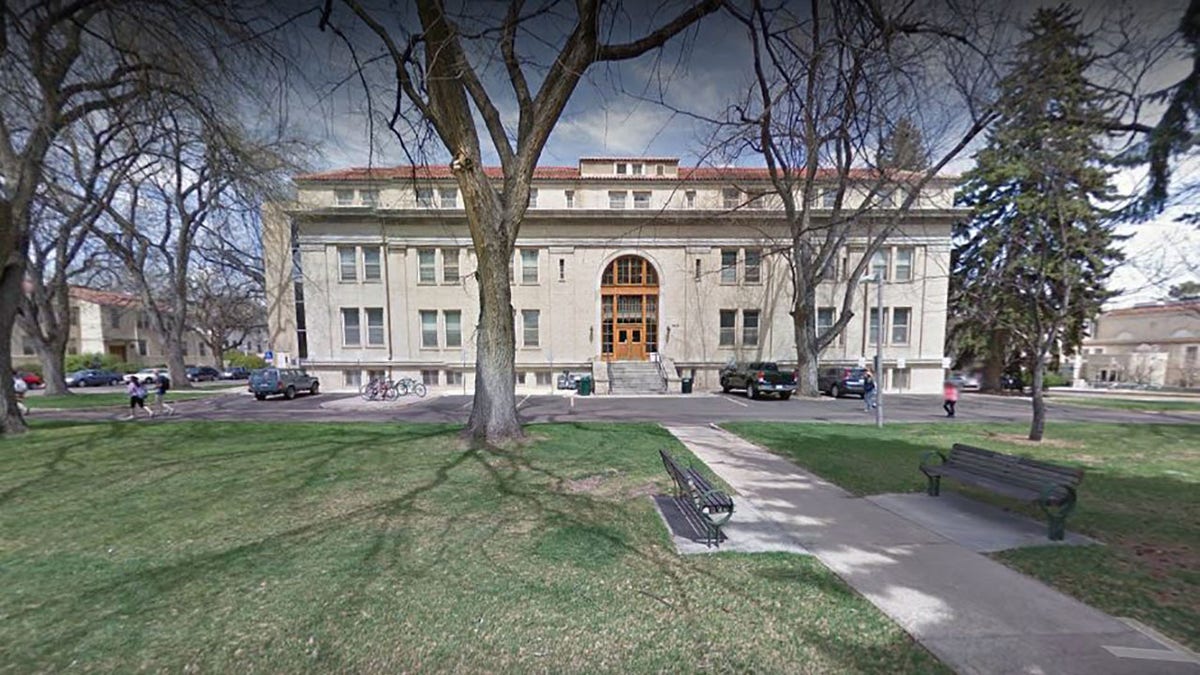Fox News Flash top headlines for July 27
Fox News Flash top headlines for July 27 are here. Check out what's clicking on Foxnews.com
Are the words "America" and "American" potentially offensive? Maybe not, a university in Colorado has decided.
According to reports, a draft version of Colorado State University’s "Inclusive Language Guide" included "America" and "American" among words deemed to be non-inclusive.
The argument: Inside the U.S., "America" and "American" typically refer to the United States. But outside the U.S., both terms are also used in reference to other countries in North America, Central America, South America and the Caribbean.
DR. CHARLES KESLER: THE LEFT SEES POLITICAL CORRECTNESS AS 'ESTABLISHED RELIGION,' SHUNS DISSENTERS

Colorado State University in Fort Collins. (Google)
The suggested alternative: Refer to an American as a "U.S. citizen" or "person from the U.S.," the draft said.
Using "America" or "American," the draft argued, “erases other cultures and depicts the United States as the dominant American country.”
Although the university, based in Fort Collins, ultimately changed its mind, some critics had plenty to say about the draft version of the document.
For example, former Wisconsin Gov. Scott Walker took issue with it in an op-ed for The Washington Times this week.
“Instead of spending so much time worrying about ways not to offend anyone, it would be nice if our colleges and universities actually worried about teaching our students,” Walker wrote. “Since 1978, college tuition has gone up 1,125 percent -- four times the rate of inflation, while actual time in the classroom by tenured professors teaching undergraduates has gone down.”
“Instead of spending so much time worrying about ways not to offend anyone, it would be nice if our colleges and universities actually worried about teaching our students.”
In a statement, Colorado State Chancellor Tony Frank stressed that use of the guide is voluntary anyway.
“We consider free speech and the First Amendment the foundations of a great American public university,” he added.
The university said it considers its "Inclusive Language Guide" to be a "living document" and "not an official policy or required practice."
"This document is intended as a resource to help our campus community reflect our Principles of Community particularly inclusion, respect, and social justice," the draft said. "The language in the guide may not apply to every individual and it is critical to take personal preference into account. The guide is not about political-correctness or policing grammar, but rather helping communicators practice inclusive language and helping everyone on our campus feel welcomed, respected, and valued."
The final version of the guide suggests avoiding words like “male” and “female” and “Mr.” “Mrs.” or Ms," saying the words are considered non-inclusive.
“Male and female refers to biological sex and not gender,” the guide says. “In terms of communication methods (articles, social media, etc.), we very rarely need to identify or know a person’s biological sex and more often are referring to gender.”
CLICK HERE TO GET THE FOX NEWS APP
In addition, words and terms like “crazy,” “dumb,” “dwarf,” “Eskimo,” “gyp,” “Hispanic," "illegal immigrant" and "normal person" also were deemed terms to avoid.
The guide also mentions the racist history of seemingly innocuous terms like “cakewalk,” which was apparently a game that slaves were forced to play, and “Eenie meenie miney moe,” which originally used the n-word in the phrase, "Catch a tiger by the toe," according to the guide.
It also considers the term "straight" to be offensive because it implies that gay people are "'crooked' or not normal."





















